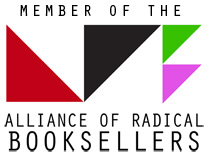Bristol Anarchist Bookfair.
Elaine Titcombe (UWE)
Radical History Zone.
20th of April.
1pm-2pm
In 1984 the doomsday clock reached three minutes to midnight. This was the closest recorded time to global destruction defined (at that time) as imminence to nuclear war, since 1953. This crisis arose as a result of an escalation of militarism between the East and West Superpowers, following the NATO decision in 1979 to modernise their theatre of nuclear weapons in response to the perceived superiority of the USSR. This modernisation consisted of the deployment of 572 new American missiles in Europe. From 1983, 106 Ground Launched Cruise Missiles were positioned in Britain, with the majority being held at the Greenham Common RAF military base in Berkshire.
In 1981, a group of 36 women calling themselves, ‘Women for Life on Earth: Women’s Action for Disarmament,’ organised a March from South Wales to the base at Greenham Common to protest against the positioning there of the American controlled nuclear Cruise missiles. A lack of media interest and a dismissive response by the Conservative Government to their demand for a public debate on the issue, gave rise to the formation of a spontaneous peace camp. Slowly the protest began to attract attention and by early 1982 it had evolved into several (distinct) women-only camps around the military base. Several women committed themselves to live and work full time at the camps giving up their everyday home comforts, and thousands more supporters arrived en masse at the base for publicised protest days when it was reported that up to 50,000 people took part.
As time went on, the women living at the camps developed a particularly feminist stance against the militaristic nature of the State, with non-violent direct action at the core of their work. They attempted to construct and live in a ‘new’ female led society that rejected hierarchical structures of command in direct opposition to ‘normal’ patriarchal / militaristic society rules. Supporting women who did not live at the camps were encouraged to “Carry Greenham Home” and spread word of the protest and feminist argument in their local communities. With reference to events staged in various locations, including Bristol and Bath, this paper will describe the innovative ways that women embraced this call for support. It will draw upon the words of the participants as they have recalled their actions, as well as the publicity material created by them and the contemporary coverage of the events by the local media and other groups.
As the camps persisted the Authorities became increasingly intolerant of the women’s protest and began to react. Women were increasingly arrested, imprisoned, evicted and man-handled as they took part in disruptive actions in order to prevent normal operations at the base. The media was quick to brand the women as undesirables and over time it became increasingly difficult to persuade new women to the cause. Beyond the mid ‘80s the protest began to wane in popularity, but work continued at the camps well beyond the removal of the nuclear weapons following the Intermediate-Range Nuclear Forces Treaty (INF) of 1987, with the last residents leaving the site in September 2000.
In addition to exploring the story of the Greenham Women’s protest using a variety of media, this event allows the opportunity to consider its legacy upon radical movements and in particular for feminism.
